Academics from eleven UK universities converged at the Executive Business Centre (EBC), Bournemouth University, on Thursday 18th September, 2014 to discuss research in accounting and finance in emerging economies. This was the 12th meeting of the British Accounting and Finance Association (BAFA) (Research in Accounting and Finance in Emerging Economies (AFEE) Special Interest Group) since it was founded six years ago.
The international conference which was hosted by the Department of Accounting, Finance and Economics, part of the Business School, welcomed 35 participants from universities such as Royal Holloway (University of London), University of Essex, University of Sussex, University of Huddersfield, University of Plymouth, University of Southampton and Makerere University (Uganda).
Delegates to the conference were welcomed by Professor Steve Letza who is a professor of corporate governance within the Business School. He wished the delegates well in their deliberations and also asked delegates to walk around the Lansdowne Campus to see more of what Bournemouth University has to offer.
The guest speaker for the conference was Professor Chris Napier from Royal Holloway, University of London, who spoke on ‘Historical Accounting Research in Emerging Economies’. Among others, he highlighted the need for such research but also warned of the difficulties with that kind of research given that historical records in accounting often do not exist in emerging economies.
A total of seven papers were presented and each presentation was followed by a discussant who highlighted the merits of the paper and also gave suggestions for improving the paper. The delegates, especially the PhD students, were highly appreciative of the inclusion of the discussant for the first time since the inception of the AFEE Special Interest Group.
Apart from the conference deliberations the delegates were very complimentary about the quality of the venue (EBC, 7th Floor). Above all there were really surprised to learn that the venue is dedicated to our MBA students as their respective universities do not have facilities for the sole use of MBA students.
/ Full archive
Epidural simulator shortlisted for THE award
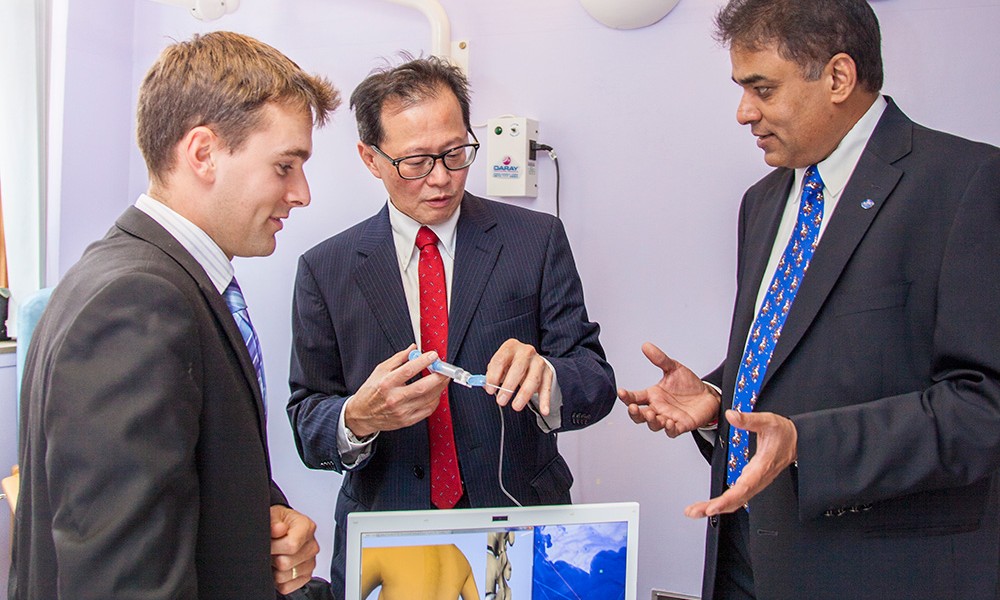 A prestigious BU and Poole Hospital medical engineering project has been shortlisted for Outstanding ICT Initiative of the Year in the 10th annual Times Higher Education (THE) Awards.
A prestigious BU and Poole Hospital medical engineering project has been shortlisted for Outstanding ICT Initiative of the Year in the 10th annual Times Higher Education (THE) Awards.
Dr Venky Dubey, Dr Neil Vaughan (Bournemouth University) and Professor Michael Wee (Poole Hospital) developed a prototype epidural simulator that will improve training for this delicate procedure. The team are now working with NHS Innovations South West Ltd., who develop and commercialise new innovative technology and train NHS Innovation Leaders. Their company mission is to enhance healthcare delivery. More information is available at www.NISW.co.uk
The device uses software to replicate epidural insertion, combining ultrasound and MRI images to assist epiduralists in determining the position of the needle.
Unlike existing epidural training technology this incorporates patient’s weight, height and BMI. Coupled with a physical manikin, this is a realistic model for training. An accompanying training package helps users monitor their improvement
There is more information on this research project on the BU Research Webpages.
Congratulations to Venky, Neil and the Poole Hospital team for this achievement. We wish them luck for the awards ceremony, which will take place on Thursday 27 November 2014 at the Grosvenor House Hotel, Park Lane, London.
The award ceremony promises to be a spectacular event with over 1000 guests expected to attend, including politicians, senior sector figures, and academic and university staff from all corners of the UK.
The full shortlist for all 18 categories is published in the latest issue of Times Higher Education, and is also available on the awards website.
BFX Academic Conference 2014
 The BFX Conference “Digital Convergences 2014” runs next Monday and Tuesday on the Talbot Campus.
The BFX Conference “Digital Convergences 2014” runs next Monday and Tuesday on the Talbot Campus.
Keynote Speakers are Professor Lev Manovich, author of ‘Software Takes Command’ and ‘The Language of New Media’; and Professor Sean Cubitt, author of ‘The Cinema Effect’ and ‘Studying the Event Film: The Lord of the Rings’.
This conference intends to present and analyse the convergences that are occurring across and within the genres of moving image, in part resulting from the impact of digital technologies. Through an interdisciplinary approach, the BFX conference invites authors to examine various theoretical positionings with a view to realign the discussion in the light of current technologies. The conference seeks to revisit the arguments that position film, animation and art as aesthetically, structurally and intellectually different.
The conference director is Ms Paula Callus of the NCCA Visual Research Group.
Further information is available from:
http://www.bfxfestival.com/conference/
https://bfxconf.bournemouth.ac.uk/index.php?conference=BFX&schedConf=2014
Make Your Voice Heard – The next step
Thank you to all those who got came along and got involved in the first Make Your Voice Heard event on 10 September 2014.
Important topics were highlighted, such as how academics can enrich the media and how to balance different stakeholder wants and needs. There was also an opportunity to acquire hands-on tips and techniques for dealing with TV and radio appearances.
But the conversation doesn’t end there.
We want to know what you think about the relationship between research, academics and the media. For example, how do you currently approach the media as a researcher? What approaches worked for you, and what didn’t work? Are there limits to what should be shared via the media? And does using the media enhance a reputation?
Over the next week we’ll be posting some of the slides from the Make Your Voice Heard event on the Research Blog and asking what you think of research in the media.
Join the discussion by commenting below or email newsdesk@bournemouth.ac.uk if you would like to contribute to the debate by writing a blog post.
BU presents at 5th International Symposium on Security and Military Law 2014 (the ISSML) in SEOUL
Sascha-Dov Bachmann, Associate Professor in International Law, was invited to present as a panel member the subject of Hybrid War/Threats/Ecothreats and Armed Conflict at the 5th International Symposium on Security and Military Law 2014 (the ISSML), to be held on September 25-27, 2014 in Seoul and organized by the Office of Judge Advocate General, Republic of Korea Army.
The purpose of the ISSML is to bring together leading authorities of the world including scholars, government officials, and military officers, to provide a meaningful opportunity to discuss, explore, and examine on current international law issues, and to serve as an effective forum of security and military diplomacy for peace and stability of the world.
This year’s ISSML has so far attracted high ranking military officers, government officials, scholars from 22 countries; and confirmed presenters including judge advocates having operational law assignments from US, UK, Australia, and S. Korea, Belgium General Counsel to the Office of Ministry of Defense and an ICRC Assembly member.
Sascha’s work on Hybrid War and Ecothreats has been published in various international and UK journals and is subject of continuing collaborative activities with colleagues and institutions from the UK, US, Sweden and Germany.
Dr Jerome Singleton is visiting BUDI to present a lunch time seminar on 30 September, PG146 Talbot Campus
To reserve your place please email Michelle O’Brien on mobrien@bournemouth.ac.uk .
Bournemouth University Dementia Institute
Lunch Time Seminar
Speaker: Dr Jerome F Singleton
Title: Shifting Perspectives: Inclusion of citizens with various abilities across the life course in leisure
Date: Tuesday 30th September
Time: 13.00 to 14.00
Venue: PG146, Thomas Hardy Suit, Talbot Campus
Biography
Jerome F. Singleton, PhD, CTRS is a professor in the Recreation and Leisure studies department in the School of Health and Human Performance at Dalhousie University. He is also cross appointed to the School of Nursing, Sociology and Anthropology, and Faculty of Management at Dalhousie. Dr. Singleton’s research is focused in the area of Leisure and Aging. He graduated from the University of Waterloo with a Bachelor of Recreation honours degree then completed his Masters of Science degree in Recreation at Pennsylvania State University and his PhD in Leisure Studies at the University of Maryland. He also completed the academic requirements for a Doctorate Certificate in Gerontology at the University of Maryland. Currently Dr. Singleton teaches courses in the area of Therapeutic Recreation and Aging, Therapeutic Recreation Techniques, Therapeutic Recreation Administration and Leisure and Aging graduate class at Dalhousie University. He was made a Fellow of the World Demographic Association in 2006 and was named Canadian Therapeutic Recreation Association Professional of the Year in 2007. He was recognized by the Recreation and Leisure Studies program at the University of Waterloo as a Distinguished Alumni in 2008 and is also founding member of the Leisure and Aging Research Group, which was established in 2008. Dr. Singleton received the Dr. Gonzaga da Gama memorial award from the Canadian Therapeutic Recreation Association in 2011 and was made a fellow of the Academy of Leisure Science by the Society of Parks and Recreation educators in 2011. Dr. Singleton is currently a Research Associate with the Dalhousie European Center of Excellence. Dr. Singleton has advised 27 master students who have investigated questions related to Leisure and Aging areas and has published approximately 100 journal articles during his career and made presentations locally, nationally and internationally, related to the area of Leisure and Aging. Dr. Heather Gibson and Dr. Singleton (2012) published the text Leisure and Aging Theory to Practice. He is currently a Commissioner for the World and Leisure Recreation Association for the Commission on Access and Inclusion. He is currently the Program Chair for the Canadian Congress on Leisure Research conference that will be held in Halifax, May 20 to 23 2014. He has served on the editorial boards for the Therapeutic Recreation Journal, American Therapeutic Recreation Annual, Topics in Geriatric Rehabilitation, Annals in Leisure Research and the Journal of Recreation and Society in Africa, Asia and Latin America, and has reviewed articles for Loisir, Leisure Science and Topics in Geriatric Rehabilitation.
‘Telling Tales of Engagement’ Competition 2014
The Research Councils UK (RCUK) Digital Economy Theme (DET) is running a competition which is designed to help capture and promote the impact that your digital economy research is having.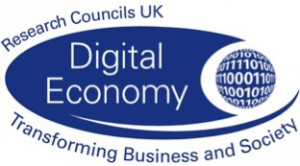
There are three prizes of £10,000 available which will support researchers to further tell the story of research impact in an interesting and engaging way to a larger audience. The competition is designed to produce very informative case study exemplars which can be used to help the wider research community develop understanding of the nature of a pathway to impact. It aims to encourage applicants to tell a story to describe the pathway to impact which actually occurred. This should be even more informative because understanding how impact arises is key to planning for future impact pathways. They want the stories to portray impact as including what capability has changed outside the institutions, and what benefits that exercising this capability change has then delivered. Each “Tale of Engagement” in showing how the actual impact arises and the evidence of the impact itself will thereby show clearly the link between the impact and the research. Choosing how to tell the story should reflect the nature of the story itself.
You can find further information here: TellingTalesOfEngagementCall
If you have any questions, then please do contact:
EPSRC
Dr John Baird 01793 444 047
Mrs Ruth Slade 01793 444 261
tellingtalesofengagement@epsrc.ac.uk
Introducing the Mass Observation Project (1981-2014) As a data source for researchers
If you fancy attending an interactive day event aimed for doctoral students and researchers, this event is one not to miss!
The event will introduce you to the unique resources of the Mass Observation Project (MOP). It provides the chance to discuss and try-out the opportunities that the MOP presents for qualitative longitudinal and/or mixed-method research.
The MOP is a self-selecting citizen’s writing project where individual writers have been answering sets of themed questions/directives on a range of different issues, themes and events between 1981 and present day.
Reasons why you should attend this event
During the day you will be able to:
- Go on a tour of the archive and its resources with staff at the archive.
- Be ‘introduced’ to MOP writers and the topics they write about.
- Discuss a case-study example of a longitudinal mixed-methods project at the University of Southampton, which is using MOP writing in combination with the British Household Panel Survey and the British Social Attitudes Survey.
- Take part in a hands-on workshop where you can examine and analyse the scripts of individual writers across time.
This event would be suitable for any researcher – including post-graduate/doctoral researchers from a range of different disciplines (social sciences, humanities, and different science and STEM disciplines) who are considering using qualitative and/or mixed research methods.
Where and when the event will take place
The event takes place on Monday 27th October at The Keep in Brighton – 10am to 4.30 pm. (please arrive for registration before 10) The Keep is a fully accessible venue. If you require further information on accessibility, please contact moa@sussex.ac.uk.
General Information for the day
On the day refreshments and lunch will be provided. There is a £16 fee to cover the costs of this event and if you could please book by visiting this link : The maximum number of participants for this event is 20. Booking for this event will close at midnight on 20th October, or when we have reached our maximum number of participants.
For enquiries about this event please contact Rose Lindsey tel: 02380 594442 or email: R.Lindsey@soton.ac.uk
Calling all science researchers: your thoughts needed!
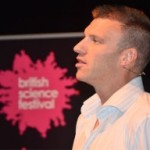 Message from Rachel Bowen, BU’s new Research Communications Manager:
Message from Rachel Bowen, BU’s new Research Communications Manager:
There are many reasons for researchers to take part in science communication and share their ideas with the world. Communicating research can make a difference to the direction of a policy debate, can help to shape people’s opinions or build on the reputation of researchers or of a university.
Key to the process is timing. Too late and public engagement may either make no difference to the direction of research or its impact could be lost. Too early, and results may not be conclusive enough to create a meaningful impact. In other instances, publication may be driven by external events outside of the control of either researchers or communicators.
The question for us, as communicators, is how to ensure that timing enhances the impact of the research, and reputation of both researchers and the university. As part of a piece of research I’m carrying out for a CIPR qualification, I have an opportunity to explore just that, and to question whether the timing of science communication can make a difference to reputation.
If you have five minutes to spare, please respond to the following survey and share your thoughts about the impact of timing in science communications: https://www.surveymonkey.com/s/9VT66M8. All information gathered will be used anonymously.
Rachel will be joining the Research and Knowledge Exchange Office at the end of September. To explore how you can communicate your research, please contact Rachel or Becca
PR practitioners on campus for training
In a contribution to the international PR Measurement Week, regional practitioners attended an evening training session in The Media School on September 16.
The public engagement event was organised by Professor Tom Watson and Wessex Chartered Institute of Public Relations (CIPR) chair Natasha Tobin, who lectures part-time on the BA Public Relations programme. It was attended by 14 CIPR members, who also gained CPD points for their annual professional training quota.
The practitioners were shown basic media measurement techniques using an Excel utility which Professor Watson has developed. It features in the third edition of ‘Evaluating Public Relations’ (Kogan Page 2014) co-written with former BU lecturer Paul Noble.
“Measurement and evaluation is one of the top PR practice issues and we were pleased to organise hands-on training for regional PR people as part of the international week,” said Professor Watson. “BU has had a long relationship with CIPR since BAPR was started in the late 1980s and so they were natural partners for this initiative.”
Measurement Week has been organised around the world by the Association for the Measurement and Evaluation of Communication (AMEC) and has the support in the UK of CIPR and the Public Relations Consultants Association (PRCA, which both recognise BU’s public relations courses.
Talk BU Live
Next week sees the launch of Talk BU Live, a series of live talks from our academics aimed at getting people thinking and talking.
The first event will be in Dylan’s on 23 September and will start at 5.30pm. The talk itself will last 20 minutes or so.
Who is Talk BU Live aimed at? Anyone in the BU community – so academic staff, professional staff and students.
Too often we hear the term “silos” to describe working and studying at BU, so this is an opportunity to come along and explore other areas than just where you work or where you study. We need as a university to give our community a range of opportunities to expand horizons, to meet other people and to share ideas. Talk BU Live will be a chance to add to the whole experience of being involved with BU in whatever capacity.
The first talk is by Professor Stephen Heppell and is entitled “Shoeless & Sausages: Making Learning Better”. Stephen is an internationally acclaimed academic, practitioner and innovator of learning in all its forms and this is a fantastic opportunity to hear a truly influential voice in the field of education discussing the world of learning. Stephen’s research is very wide-ranging and touches on everything from not wearing shoes in class to aid concentration to what one should eat on the morning of an exam.
Further details of the event and of BU’s comment page Talk BU here.
£1million in digital healthcare innovation available from Creative England
- 5 x £50,000 investments will be made.
- Companies must be based in the North, Midlands or South West.
- Examples of projects could be improving quality of care; caring for people with dementia; supporting people with long-term conditions; and data visualisation.
- Mobile apps, development of a new game for tablet or mobile are also eligible.
Applications will be assessed on a rolling basis and the fund will close on 31 October 2014.
More information can be found here.
Alternatively please feel free to contact
Jayne Codling – Knowledge Exchange Adviser
Ext 61215 jcodling@bournemouth.ac.uk
Opportunities for Researchers after a Career Break
If you have been away from the workplace, you may feel that your career is on hold or slipping backwards, but with the schemes highlighted below, you have the opportunity to re-invigorate your academic career:
Within Biomedical Sciences, the Wellcome Trust Research Re-entry Fellowship is one scheme within their suite of Flexible Working options. This scheme is for postdoctoral scientists who have recently decided to recommence a scientific research career after a continuous break of at least two years. It gives such scientists the opportunity to return to high-quality research, with the potential to undertake refresher or further training. The fellowship is particularly suitable for applicants wishing to return to research after a break for family commitments. The next deadline is 06/10/14.
The Wellcome Trust also offers the Sanger Institute Fellowship, which enables and opens routes back into science for those who have had a break from scientific research – for any reason. The funder understands that even a short time out of research can have an impact on your career, which is why they have created a postdoctoral fellowship providing an additional opportunity specifically for those who have been out of scientific research for one year or more to return to high-quality postdoctoral training. One Fellowship will be awarded each year. Each Fellowship will last for three years and can be worked full time, part time or flexibly. The next call for applications will be in mid-2015.
A Daphne Jackson Fellowship is a unique fellowship designed to return STEM professionals to their careers after a break. Fellows normally carry out their research part-time over 2 years, in a university or research establishment in the UK. The Fellowships are flexible and include a tailored training programme designed to update skills and knowledge and support you in your return to research. If you are ready to return to research following a break of 2 or more years, take a look at their sponsored fellowship opportunities. Alternatively, if you have a potential host institution and/or research area in mind, you can apply for a fellowship at any time. If your application is successful, the Trust will endeavour to find suitable sponsorship.
The Royal Society’s Dorothy Hodgkin Fellowship scheme is for outstanding scientists in the UK at an early stage of their research career who require a flexible working pattern due to personal circumstances such as parenting or caring responsibilities or health issues. Female candidates are particularly invited to apply. The scheme covers all areas of the life and physical sciences, including engineering, but excluding clinical medicine. Applicants must be able to demonstrate a current need for flexible support due to personal circumstances at the time of application. This can include current parenting or caring responsibilities (such as raising children or looking after ageing or seriously ill family members), clinically diagnosed health issues or other personal circumstances that create a need for a flexible working pattern. This scheme is closed for 2014 but should open again in late 2014 / early 2015.
Although these are the main schemes, it is worth checking if smaller funders or charities in your field also provide such funding. For example, a quick internet search found a similar scheme offered by the British Heart Foundation.
Argyro Karanasiou at the OSCE’s experts meeting on open journalism.
Argyro Karanasiou (http://staffprofiles.bournemouth.ac.uk/display/akaranasiou), a member of CIPPM (http://microsites.bournemouth.ac.uk/cippm/focus-areas/digital-rights/) and Lecturer in Law at BU has been invited by the OSCE (Organisation for Security and Cooperation in Europe) Representative on Freedom of the Media to join the expert meeting on open journalism. The high level meeting will focus on the human rights and legal implications of Open Journalism. Presentations and discussions will focus on new ways to protect media plurality and the rights of non-traditional voices online.
Argyro, who was awarded a PbD (Privacy by Design) Ambassadorship by the Information and Privacy Commissioner of Canada this July, shall be discussing the concept of online free speech and open journalism by design.
The event will take place in Vienna, Austria on Sept 19th and will be will be webcast live on www.osce.org.The meeting and all information related to the event, including documents and information about the speakers is available at www.osce.org/event/open-journalism.
Learning Research Group – Launch Workshop 2.10
To launch the new cross-BU learning research group, a workshop will be held in the new Centre for Excellence in Learning space (PG30a) on Thursday October 2nd, 10am to 12.30pm.
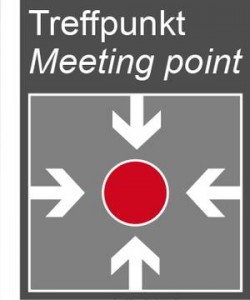
The session will firstly offer an overview of educational research journals and conferences, funding opportunities and REF criteria (including the provisional BU strategy for entering the education UoA). Secondly, participants will have the opportunity to work together to share research, ideas and / or plans, with the aim of generating some collaborative approaches.
Please come along if you have educational research to share, are starting out in educational research, need advice on getting started or are just interested.
There will be no obligation to join the research group.
In addition, I will be basing myself in the CEL space for people to ‘drop in’ and chat about learning research one Friday a month. The next one is Friday October 31st (10 – 3).
Once the group is established, further meetings and workshops will be arranged through CEL.
For some context / detail, have a look at this provisional overview and strategy Education UoA position paper and / or contact me – julian@cemp.ac.uk
Congratulations and Good Luck
August saw an increased level of activity for bids being submitted and awards being won with congratulations due to Schools/Faculty for winning consultancy and BU 2014 Match Funded Studentships.
For the Business School, congratulations are due to Jens Holscher, Andrew Mullineux and Dean Patton for their application from the ESRC on Access to Finance for SMEs, to Lois Farquharson and Melissa Carr for their short courses on CPD – Developing your personal leadership brand and CPD – Leading people and teams, to Thanh Huynh for his application from the British Council, to grants academy member Dinusha Mendis for her contract with the ESRC and with Tania Humphries-Smith (DEC) their BU 2014 Match Funded Studentship, and to grants academy member Venancio Tauringana and Elena Cantarello (Faculty of Science and Technology) for their BU 2014 Match Funded Studentship. Good luck to grants academy member Argyro Karanasiou for his contract to the BILETA.
For HSC, congratulations are due to grants academy member Jane Murphy for her BU 2014 Match Funded Studentship with British Egg Industry Council, and to Lee-Ann Fenge, Keith Brown, and Gary Barrett for their BU 2014 Match Funded Studentship with Hampshire County Council. Good luck to grants academy member Michelle Heward and Fiona Coward for their application to Dorset County Council on fire prevention in the homes of people with dementia, and to Anthea Innes, Peter Thomas and Samual Nyman (Faculty of Science and Technology) for their application to the European Commission.
For MS, congratulations are due to Kerry Rowland-Hill for her consultancy with THAT Bournemouth Company Ltd, and to Peter Truckel for his consultancy with Business South.
For the Faculty of Science and Technology, congratulations are due to Siamak Noroozi and Philip Sewell for their BU 2014 Match Funded Studentship, to Siamak Noroozi and Mihai Dupac for their BU 2014 Match Funded Studentship, to Feng Tian for her BU 2014 Match Funded Studentship with Starlight Culture Investment Pte Ltd, to Feng Tian and grants academy member Nan Jiang for their BU 2014 Match Funded Studentship with Yalong Vehicle Service Limited, to Katherine Appleton for her BU 2014 Match Funded Studentship, to Ian Swain and Christos Gatzidis for their BU 2014 Match Funded Studentship with Odstock Medical, to Raian Ali, Jacqui Taylor, Keith Phalp and Sarah Williams (HSC) for their BU 2014 Match Funded Studentship with Streetscene, to Venky Dubey for his BU 2014 Match Funded Studentship, to Zulfiqar Khan and Mihai Dupac for their 2014 Match Funded Studentship with the National University of Science and Technology, Pakistan, to Zulfiqar Khan and Kamran Tabeshfar for their BU 2014 Match Funded Studentship, to Jonathan Monteith for his consultancies with Andy Brown, Amtrose Limited, Terence O’Rourke Plc, Bloor Homes Limited and Sembcorp Bournemouth Water Ltd, to David Osselton and grants academy member Sulaf Assi for their BU 2014 Match Funded Studentship with Hampshire Cosmetics Ltd, to David Osselton for his BU 2014 Match Funded Studentship with Alere Toxicology, to Robert Britton and grants academy member Demetra Andreou for their BU 2014 Match Funded Studentship with Severn Rivers Trust, to Anita Diaz, grants academy member Phillipa Gillingham and Richard Stafford for their BU 2014 Match Funded Studentship with the National Trust, and to Richard Stillman and Roger Herbert for their BU 2014 Match Funded Studentship with Natural England.
Good luck to Christopher Benjamin for his application to the Sonar Short Course, to Richard Gunstone for his consultancy to Smartway2Limited, to grants academy member Christopher Richardson for his consultancy to Data Harvesting Ltd, to Jan Wiener for his application to the Experimental Psychology Society, to Sarah Bate, Rachel Bennetts and Benjamin Parris for their application to Bial Foundation, to Paola Palma and Richard Stafford for their application to Historic Scotland, and to Genoveva Esteban for consultancy to Dorset Campaign to Protect Rural England.
For ST, congratulations go to Jonathan Hibbert for his consultancy with Bournemouth Borough Council, to Andrew Adams for his LSA Conference 2015, to Jeff Bray for his short course with Hall & Woodhouse Ltd and for his BU 2014 Match Funded Studentship with China Sourcing Ltd with Tania Humphries-Smith (Faculty of Science and Technology), and to Dimitrios Buhalis and grants academy member Alessandro Inversini for their BU 2014 Match Funded Studentship with Bournemouth Tourism. Good luck to Adele Ladkin for her application to the EPSRC, to grants academy member Nigel Williams for his application to the Project Management Research Institute, and to Jonathan Hibbert for his consultancy to Weymouth & Portland Borough Council.
Sport Management Researcher and Students Create Impact on International Field
Last weekend, Dr Tim Breitbarth (Senior Lecturer in Sport Management) and MSc Sport Management students Lisa Kaisner, Manuel Perez Vehi, Chih-Heng Kwan and Junbeom Kim returned from their 8-day trip attending the 22nd European Association for Sport Management (EASM) Conference, EASM Masters Seminar and EASM PhD Student Seminar. Following various successes at the 21st EASM conference in Istanbul last year, the BU travel party again made strong contributions to this leading international sport management conference.
Together with 60 students from around the globe, the students worked in mixed groups on three different sport marketing cases and had to present their findings and plans in front of a critical jury over the period of 4 days before the main conference. Lisa and her team won the case competition on the Olympic legacy of the Coventry Ricoh Arena and, therefor, were invited to present at the main conference. Feedback from the students on the Masters Seminar in particular was largely positive – especially in terms of networking, making new friends, learn from one another and visiting sport venues/matches like the Rugby School and the season opening of the Leicester Tigers.
Invited Keynote and Conference Workshop Convener
Besides tutoring at the Masters Seminar, Dr Tim Breitbarth was invited to provide a keynote at the PhD Student Seminar titled “Book or articles? Assessing the strengths and weaknesses of the form of your PhD thesis”. His contribution was very well received and awarded during the conference dinner. He also mentored three PhD researchers from Belgium, South Africa and Mexico at the Seminar and gave advise on their research.
At the main conference, Tim together with his small international team organized and convened a workshop on corporate social responsibility in and through sport. Again, the workshop was the second most popular in terms of submissions and all five sessions attracted a great audience. The academic workshop was spiced-up by inviting Nico Briskorn (Head of CSR at German professional football club VFL Wolfsburg) and Chris Grant (CEO, Sported Foundation – the London 2012 charity legacy) to contribute their expert insights into the application of CSR and sport.
Highly Cited Paper and Special Issue Editor
The relevance of the topic is also manifested by the fact that the paper “The Role of Corporate Social Responsibility in the Football Business: Towards the Development of a Conceptual Model” by Tim Breitbarth and Phil Harris from 2008 published in European Sport Management Quarterly (second highest ranked sport management journal in the world) has been the journal’s most cited article over the past 3 years. Also, Tim is the lead editor of the Special Issue “Governance and CSR Management in Sport” in ‘Corporate Governance: The International Journal of Business in Society’ which will be published early/mid 2015.
In addition, Tim presented two research papers, one of which based on an awarded Bachelor dissertation by last year’s graduate David Thomas whom he supervised.
In general, despite being a rather small party at a 500+ delegates conference, the BU team created awareness for our sport programs in particular and Bournemouth in general. Travelling Masters students were somewhat lukewarm about the practical value of the main conference (e.g. as a means to find a job), but overall enjoyed the experience and talking to experts from various fields. Several visits from renown (inter-)national scholars, academics from partner universities and PhD students are already in planning for 2015.
Please contact Dr Tim Breitbarth at tbreitbarth@bournemouth.ac.uk

F.l.t.r.: Lisa Kaisner, Chih-Heng Kwan, Manuel Perez Vehi, Tim Breitbarth

F.l.t.r.: Nico Briskorn (VFL Wolfsburg), Christos Anagnostopoulus (Co-Convenor, University of Central Lancashire), Frank van Eekeren (Co-Convenor, Utrecht University), Tim Breitbarth (Lead-Convenor, Bournemouth University), Wojtek Kulczycki (Technische Universität München), Chris Grant (Sported Foundations), Stefan Walzel (Co-Convenor, German Sport University Cologne)
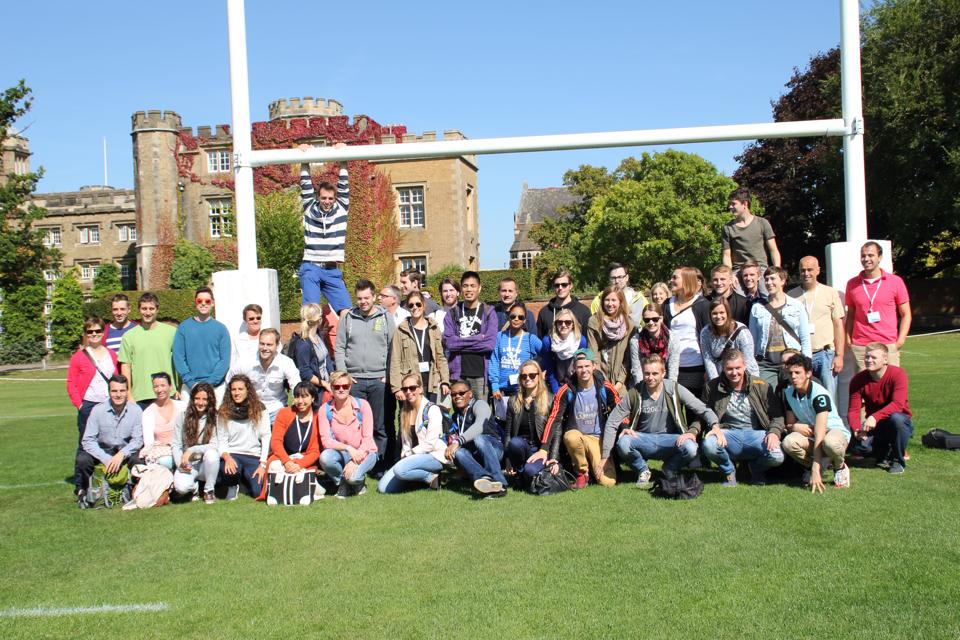
Group of Masters students at Rugby School
Public Engagement, Bournemouth University & Fusion
Public engagement is a term that you may recognise, but do you really understand what public engagement is and what makes it so important?
What is public engagement?
Public engagement is a term which is associated and used in a variety of sectors- from arts and heritage to science policy and local government. Although the term is spread across these sectors, there is a common aspiration shared between them. To better connect the work of universities and research institutes with society. As the NCCPE tells us the key thing to remember is to make sure engagement is a two way process of give and take between academia and society.
Understanding Fusion: making the connection between public engagement & Bournemouth University
“Fusion is the combination of inspirational teaching, world-class research and the latest thinking in the professions which creates a continuous and fruitful exchange of knowledge that stimulates new ideas, learning and thought leadership”
This is at the heart of all we do here at BU and a key focus of our 2018 strategic plan. The NCCPE also give us three fantastic reasons why we should support public engagement.
- It brings significant benefits to universities and to the public-
The universities that commit and dedicate to public engagement activities can create long-term relationships with the community, businesses and general public. By creating Public engagement activities it is possible to help our academics and researchers to understand, recognise and then learn from what the public expect and in addition, what are their concerns are. This may help solve real world problems in the long term. By involving members of the general public in academic research, this can enable our researchers to make their decisions and research more responsive to our society.
- Funders and policy makers expect universities to do it
In Order for our universities projects and research to be funded, the funding providers look to see the level of impact and overall benefit to the public. The next summers Festival of Learning will provide academics with an incredible opportunity to demonstrate both of these, whilst inspiring these public stakeholders along the way.
- It helps universities adapt to a changing world
Public engagement allows our university to adapt to the changing world. This is done by understanding changes to the community and world culminating in us readapting ourselves to meet the needs of the community.
Why you should get involved in public engagement!
Research from our eight societally driven themes is the content which is broadcast through our public engagement, using the strategies stated above. Therefore, it is of upmost importance that this is communicated effectively, with our public stakeholders understanding the latest research that is undertaken at the university. By creating stand out and memorable public engagement events, our public stakeholders understanding levels of the research that is undertaken by many in the university will increase. This in turn, will provide various positive externalities as a result.
Getting involved
Why not present and display your research to INSPIRE our local community?
Publically engaging will not only inform the public of your research, but it allows them to engage with it. BU2018 aims to see BU share our expertise and knowledge. By getting involved in activities such as the Festival of Learning, you now have the opportunity to showcase your dedicated hard-work. Become #BUProud !!
You may even be able to improve and update your research through public engagement. Through interacting with the public you will benefit from individuals who can constructively influence your research.
You will be able to access a forum where the public raise issues within your area of expertise. By helping these individuals you will be able to build a long term relationship with them.
A key benefit for you will be the enhancement of your research! By sharing your findings you will be more visible to the public eye, the media and the research community as a whole. Why let your hard work not get noticed/the acclaim it deserves?
If you have ideas for public engagement events, or want to get involved with initiatives like Café Scientifique then let us know. We’ll soon be looking for event ideas for the Festival of Learning 2015, so please do get your creative hats on or drop me an email if you’d like to meet up for a brainstorm session.
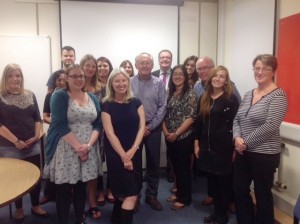

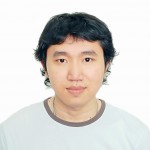

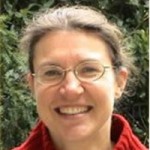












 The Beautiful Work Challenge: On Birth
The Beautiful Work Challenge: On Birth Free event on Solutions to Inequalities in Dementia Diagnosis and Care
Free event on Solutions to Inequalities in Dementia Diagnosis and Care BU attendance at third annual GCPHR meeting in June
BU attendance at third annual GCPHR meeting in June Interactive Tangible and Intangible Heritage Applications – BU student work featured in new book chapter
Interactive Tangible and Intangible Heritage Applications – BU student work featured in new book chapter MSCA Postdoctoral Fellowships 2025 Call
MSCA Postdoctoral Fellowships 2025 Call ERC Advanced Grant 2025 Webinar
ERC Advanced Grant 2025 Webinar Horizon Europe Work Programme 2025 Published
Horizon Europe Work Programme 2025 Published Horizon Europe 2025 Work Programme pre-Published
Horizon Europe 2025 Work Programme pre-Published Update on UKRO services
Update on UKRO services European research project exploring use of ‘virtual twins’ to better manage metabolic associated fatty liver disease
European research project exploring use of ‘virtual twins’ to better manage metabolic associated fatty liver disease